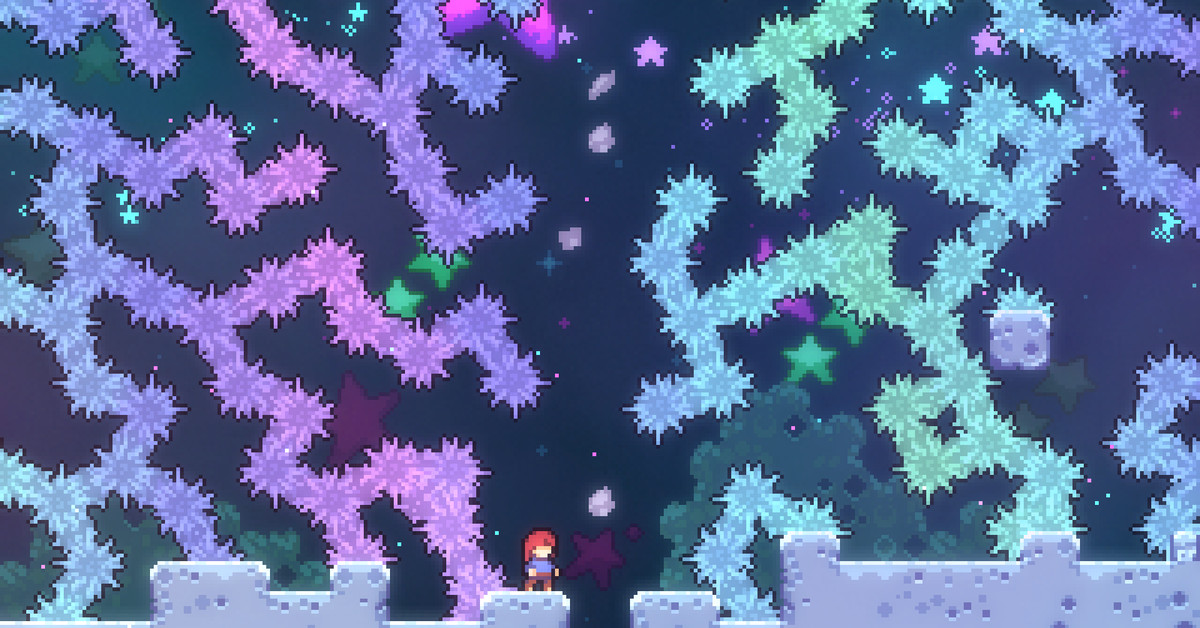
The excellent indie game Celeste is coming to an end. Today sees the launch of the game’s first, and final, expansion, appropriately titled Farewell. Game developer Matt Thorson, whose studio Matt Makes Games developed the title before rebranding as Extremely OK Games, designed the expansion to be one giant send-off: both for main character Madeline, and the players who’ve spent countless hours helping her traverse the titular mountain.
I haven’t had a chance to sink into it quite yet. But early impressions have the roughly three-hour expansion as some of the most creative and challenging levels in the game set to all-new music from composer Lena Raine, who created some of the most memorable tracks from the original.
If you haven’t yet played Celeste, there’s no better time to pick it up.
The game costs just $20 on all platforms, including the Switch, where I’ve enjoyed it in handheld mode immensely despite the struggles of platforming with the Joy-Con controllers. And frankly, it seems borderline criminal that a game of this caliber and depth can be bought for the price of a particularly elaborate Fortnite skin. Yet that’s all the more reason to get Celeste and play its expansion, which is coming to every platform for free. (Extremely OK Games today recommended that those who do want to pay for Farewell donate $5 or more to the Amazon Conservation Team nonprofit.)
To me, it’s no exaggeration to call the game a masterpiece, and there are quite a few reasons for that.
It’s hard to explain the deeper appeal of Celeste without putting yourself through its unique and sometimes punishing design framework. But you’ve heard echoes of it before. It has the same demanding difficulty loop of a FromSoftware game, blended with the instant death of masocore favorites like Super Meat Boy. Every time you perish, and you do so after making almost any mistake whatsoever, you’re instantly teleported to be the beginning of that level’s frame, where you can try again until you’ve mastered the necessary flow to proceed.
In that way, it has a near-perfect education system that helps you improve in clear and tangible ways. Beating Celeste’s more challenging levels requires a combination of mental fortitude, problem-solving, and physical dexterity that no one has when first picking up the game. But your personal growth process between the base of the mountain and its summit, one that mirrors Madeline’s, is the game’s true gift.
And its art style, music, and storytelling — the game centers mostly on Madeline’s inner battles as she struggles to climb the mountain — elevate what would have been an excellent platformer into something much deeper and more meaningful. In that way, even if you don’t like to put yourself through the wringer when playing games like this, you can find something to connect with about the underlying themes of self-love, improvement, and learning to cope with anxiety and depression.
For me, although I loved Celeste’s story and art direction, it was always about the challenge. Never has a game made me so astonished at its ingenuity and its seemingly endless ability to surprise. I often played Celeste alone in a room on my Switch, be it in a hotel for work or on vacation and in need of some quiet respite. And time and again I would find myself exclaiming out loud, to no one at all, about the sheer impressiveness of its level design or the way Thorson and their team figured out yet another layer they could add to its depth.
It would have me banging my head against the wall for hours, only to leave me exhilarated and exalting its virtues to anyone who would listen. Much like the Team Cherry developers behind Hollow Knight, the creators of Celeste are reverent of the genre they’re working within while also putting every ounce of their creative energy toward pushing that genre forward in bold and inspiring ways. Anyone who has ever enjoyed even an ounce of a Mario game can find something sublime in Celeste.
https://www.theverge.com/2019/9/9/20857240/celeste-farewell-dlc-expansion-masterpiece-platformer-game-release-date

